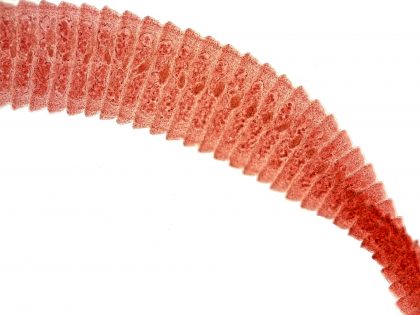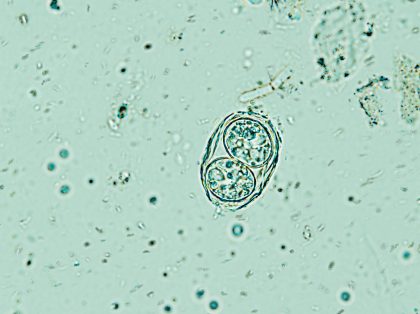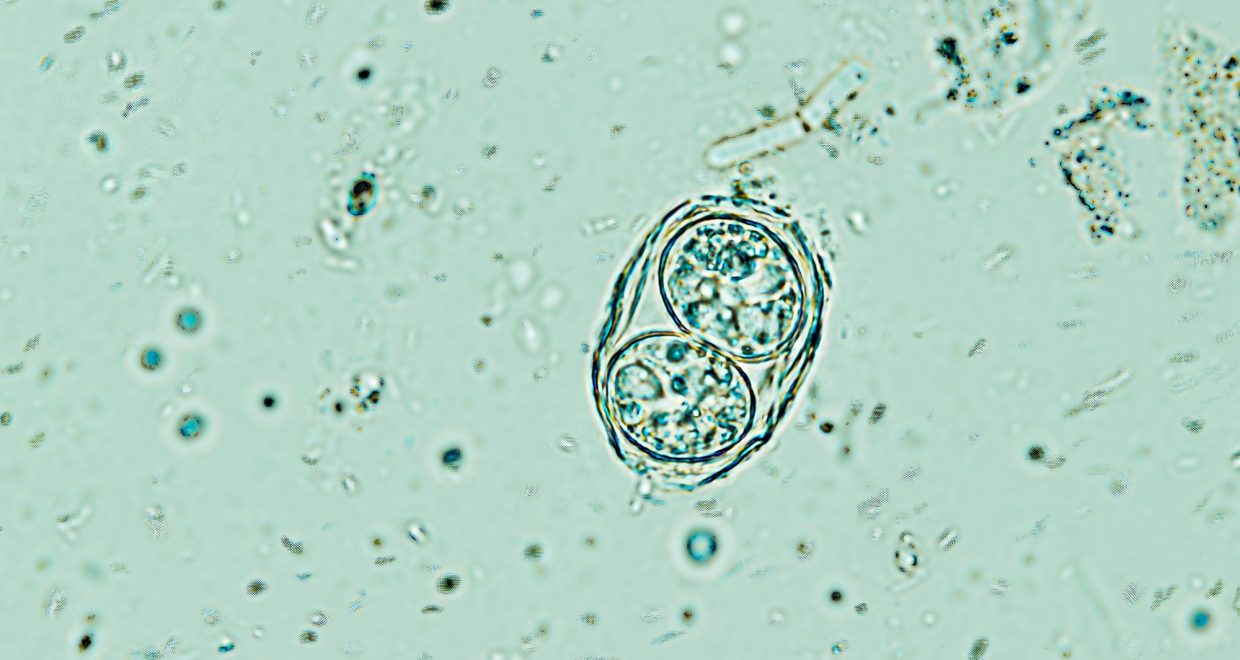Meet the Editors: Q&A with Professor Jonathan Wastling

Thank you so much for agreeing to participate in our Meet the Editors series on the Parasitology blog. We are very grateful for your time and input, and we hope that you enjoy the chance to share your work and a little bit about yourself with our readers.
Firstly, what is your current job title both within Parasitology and outside of the journal? Where are you based in the world?
I have served as an editor for Parasitology for at least 10 years and very much enjoy that role, but my day job is as the Pro Vice-Chancellor and Executive Dean of the Faculty of Natural Sciences at Keele University in the UK.
In a few sentences, please describe the focus of your work. Which parasites do you study? What is the goal of your research? What approaches do you use in your work?
I think it’s fair to say I do less research than a few years ago because of my executive role at a university, that said I am still very much involved in research. My work mainly focusses on host-parasite interactions, and I’ve spent a lot of my career working with protozoan parasites, Apicomplexa in particular. I’m also especially interested in parasites that are zoonotic or cause disease in livestock, so I’ve got an interest in veterinary parasitology too.
When did you first become interested in parasitology as a field? Did a particular teacher or mentor direct your career path?
The story is that in 1985 I was an undergraduate at Keele University, where ironically, I’ve ended up working, although I’ve gone all around the place since then. I remember seeing a little notice put up on the board for research projects for final year students. There was one that attracted me which was advertised by Professor Chris Arme, who was also an editor for Parasitology a long time ago, and Professor Hilary Hurd, looking at Hymenolepis diminuta and the Tribolium beetles which are the vector of this parasite. My interest in the field really started then, during my final year undergraduate project. That project was about host-parasite interactions, and was fundamentally very much what I’ve continued doing all my career. I then went on to do a PhD in Aberdeen with Les Chappell, then postdoctoral work at the Moredun Research Institute, where I became interested in protozoa parasites, Toxoplasma in particular. Then Edinburgh University, Glasgow University and Liverpool University, all quite closely associated with veterinary schools and parasites of livestock, and then finally I moved to my current executive role at Keele.
How did you first become familiar with the Parasitology journal?
It was the very first journal I published a biology paper in! With my undergraduate supervisor, Hilary Hurd at Keele University, and Les Chappell who was my PhD supervisor at the University of Aberdeen. It was about a little parasite called Hymenolepis microstoma. Clearly it’s not changed the world, but I was very proud of it. You sort of have an affinity for the journal in which you publish your first paper.



What is the best part of editing for Parasitology?
The best part is really seeing that the field of parasitology is alive and well, with constant new and exciting, and sometimes even unexpected articles. I enjoy seeing that the field is truly of worldwide interest. We get papers from all over the world that cover everything from the big problems of malaria in Sub-Saharan Africa all the way through to small parasites of birds only found on islands off the coast of South America. It’s a global community of individuals that put in this fascinating research and it’s great to be a part of publishing that.
Do you have any advice for those submitting to Parasitology?
I think it’s key to publish at the right time and not to just publish for the sake of publishing, but to actually really think about the data and to ask yourself what does this piece of work mean? It is also important to consider how that piece of work and that message can be communicated to an audience much wider than just your very small group of researchers. Ask yourself what are the bigger messages that might come out of this? Papers can be relatively clever or technical, but might not add anything more and so are less likely to be accepted for publication. Whereas some papers can be very simple and less technical, but actually contain concepts that are quite innovative, quite challenging, and really interesting that are distilled in a very clear message. These are the ones more likely to be accepted. So make sure you have a really clear understanding of the impact of your work in the scientific field, and don’t just write another paper that ends up with the conclusion of “more research is needed”, which is a line I particularly dislike to read, although I’m probably guilty of writing that myself in my very early papers!
What advice would you give to early career researchers who are just starting out in parasitology as a field?
It’s a fantastic field! It’s a field, which I think brings you into a huge range of career possibilities. In studying parasitology, you’re not just studying an individual organism, the parasite itself, but also its interactions with its human, plant or animal host. You really get to understand biological systems at play, as opposed to just an individual organism, which I think is really fascinating, and actually provides a wider view and really great training for the future. So it may be that you’re interested in the interaction of your parasite with the immune system. It’s not sufficient just to know about your parasites, you’ve then got to be an expert on immunology, or you may be interested in how the parasite effects ecology, or diversity in wildlife communities, so you have to know all about the ecology of the system you are studying. It brings you into contact with a vast range of individuals, geneticists, ecologist, epidemiologists, immunologists, pretty much every branch of science. If you look at it just from a career perspective this provides you with an incredibly broad portfolio, which can really move your career on in really exciting ways.
Parasitology is an important specialist journal covering the latest advances in the subject. It publishes original research and review papers on all aspects of parasitology and host-parasite relationships, including the latest discoveries in parasite biochemistry, molecular biology and genetics, ecology and epidemiology in the context of the biological, medical and veterinary sciences.






